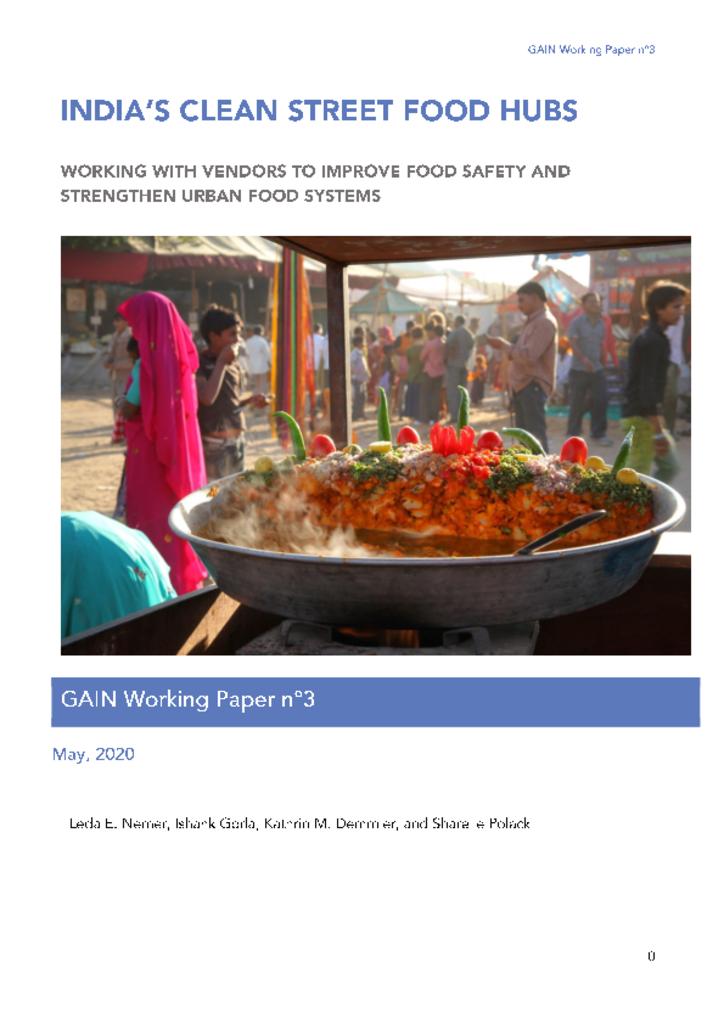Street foods - ready-to-eat foods or beverages that are sold by vendors in the street or other public places - play an important role in contributing to daily nutrition and ensuring food security worldwide. India has a rich tradition of street food vending, much of it taking place in urban areas and accessed by people from all socio-economic backgrounds. In 2018, the Food Safety and Standards Authority of India (FSSAI) piloted the Clean Street Food Hub Initiative (CSFHI), seeking to promote food safety and hygiene at popular street food locations across India. The CSFHI forms clusters of up to 50 street food vendors, connecting them to financial and logistical sponsorship from other private-sector partners, market associations, and civil society organisations. These partners organise ‘pre-audits’ for vendors looking to join the hub, facilitate training, and install infrastructure, helping increase health and hygiene. Post-training audits by FSSAI assess whether the hub qualifies for CSFH certification, based on compliance with basic hygiene and sanitary requirements established by the FSSAI through the CSFH initiative.
This working paper examines the initiative as an example of successfully prioritising (urban) governance for nutrition. It details how the initiative went beyond the usual regulatory role and created opportunities to work jointly with key stakeholders to improve food safety and hygiene. This has led to success: the initiative has thus far certified eight locations throughout the country, led to improvements in food safety and hygiene, and begun to include non-hub vendors in training and certification processes. The involvement of private partners has increased the sustainability of the initiative, and street food festivals have brought increased attention to the supported hubs and street foods in general.
